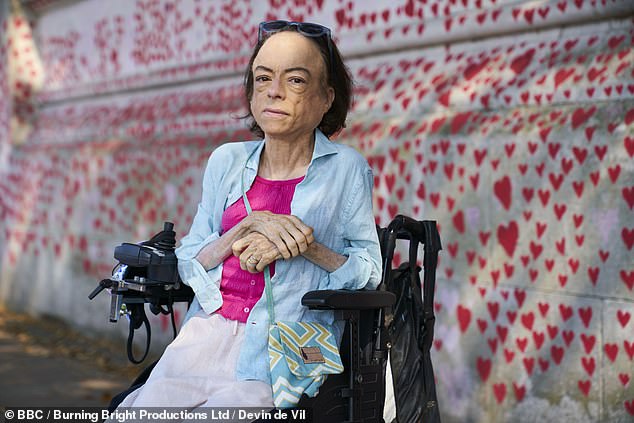The United States doesn’t usually get much praise for its social safety net.
But Liz Carr, a British television personality and disability rights activist, says the United States does something very well.
While many Western governments are making it possible for the terminally ill to end their lives through assisted suicide and euthanasia, those efforts have largely hit a roadblock in the United States, he says.
For Carr, a wheelchair user since adolescence, this is vital, because assisted dying laws put pressure on disabled people to end their lives prematurely and stop “being a burden” on their families and caregivers.
“We are told that these laws sweeping the West are inevitable,” Carr, 52, told DailyMail.com.
Liz Carr, 52, praises the United States for showing that legalizing assisted suicide “is not inevitable.”
‘But look what is happening in the United States. At any given time, there are bills in 25 states to allow assisted dying, but they continue to fail. For the last three years it has been stagnant; there is nothing inevitable about it.’
Carr is best known for playing a forensic scientist in the BBC crime drama Silent Witness. He will return to US screens after filming the third season of Good Omens, a fantasy comedy.
Since she was a child, she has suffered from arthrogryposis multiplex congenita, a rare genetic disorder of the muscles and joints, and recently became an activist for the rights of people with disabilities and against assisted dying.
Last month, he screened his documentary on the topic, Better Off Dead?, before lawmakers and influencers in Washington, DC.
Guests included California Democratic Congressman Lou Correa and Ohio Republican Brad Wentrup.
Advocates of assisted dying say the terminally ill should be allowed to die with the help of a doctor, by lethal injection or by being prescribed lethal medications to take at home, to end their suffering.
But Carr and others say that has been terrible for disabled people in parts of Europe, Australia, New Zealand and Canada, where it is allowed.
Catholics and other religious groups also oppose it on moral grounds.
Now the UK parliament, long hostile to assisted dying, will weigh a proposal to allow the procedures before the end of 2024, in part because of a pre-election promise by Prime Minister Keir Starmer.
As Carr tells it, these laws make disabled people feel “scared and threatened.”
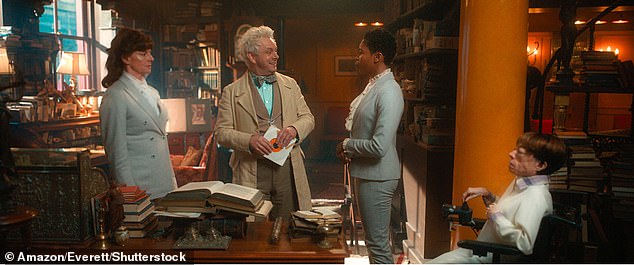
Liz Carr (right) plays the angel Saraqael in Good Omens, a British fantasy comedy series.
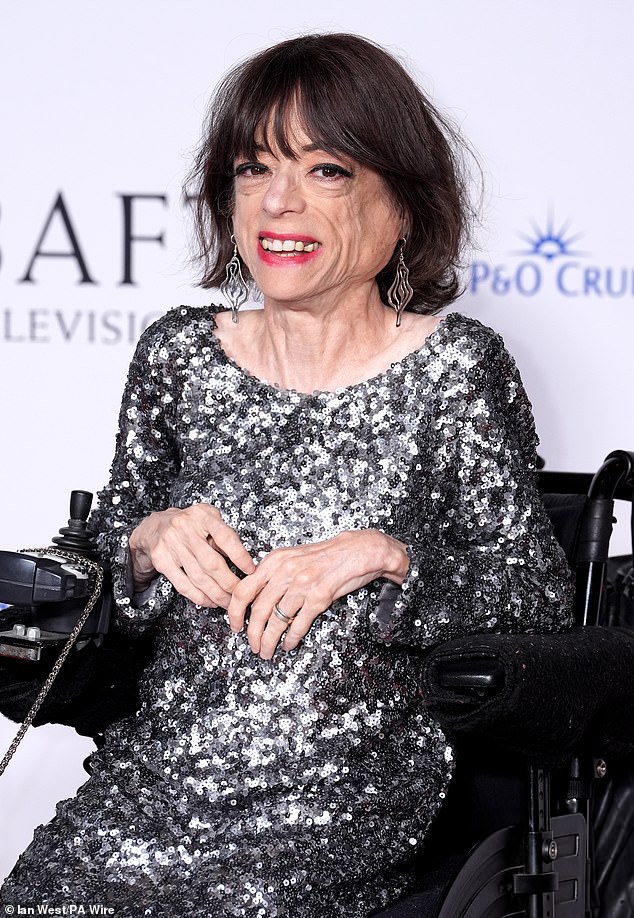
The actress and disability rights advocate presents a BBC documentary Better off Dead?, which explores the legalization of assisted dying and its potential effect on vulnerable or disabled people.
“For someone who loses their job or a loved one and is feeling suicidal, others will rally around and support them with suicide prevention help,” he says.
‘But when it comes to a disabled or sick person, people think it’s okay for their death to be medically assisted. They think it is better to be dead than to be disabled.
Canada stands out, which has one of the most developed euthanasia programs in the world.
There, disabled people complain that they are repeatedly offered lethal injections when all they really want is help to live and move more easily.
In one notorious example, Christine Gauthier, a Canadian military veteran and former Paralympian, was offered a doctor-assisted death when she struggled to have a wheelchair lift installed in her home.
“As long as we are unequal and certain groups are devalued, no safeguards will protect us,” Carr says.
Starting with Oregon in 1997, ten US states and Washington DC have legalized assisted suicide.
Patients must be at least 18 years old, within six months of death, and be evaluated to ensure they can make an informed decision.
It’s usually reserved for residents of those states, but Oregon and Vermont recently began allowing non-residents to travel and use their systems.
At least a dozen states introduced bills to legalize physician-assisted dying this year, but so far none of them have made it onto the statute books.
This has led to heartbreaking stories of people affected by terminal illnesses urging officials to pass laws that allow them to escape their suffering.
In a tragic example, Ayla Eilert died in April 2022, just seven months after she was diagnosed with cancer that left her in agonizing pain that doctors could not relieve.
The 24-year-old repeatedly asked for a doctor-assisted death but was denied because such procedures are not legal in her home state of New York.
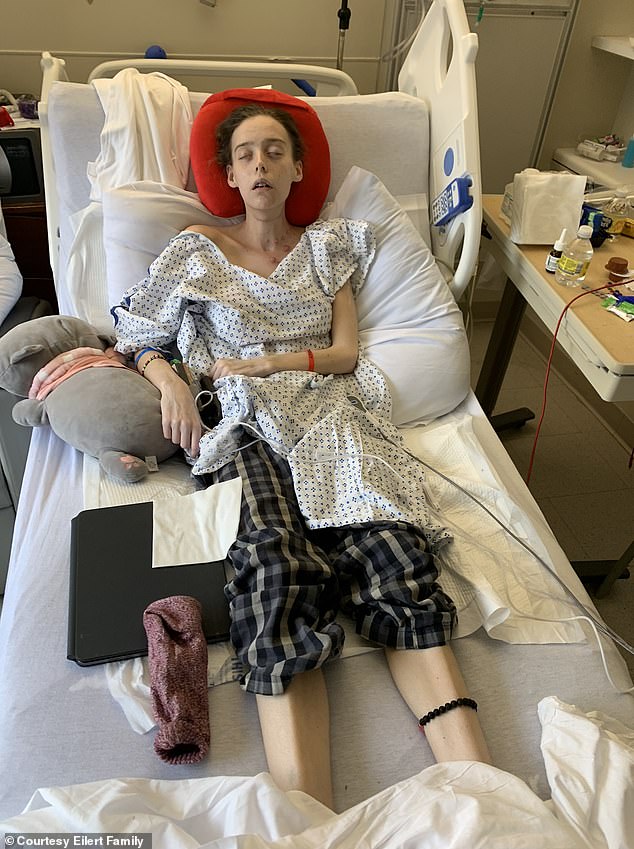
Ayla was diagnosed with squamous cell carcinoma in September 2021 and despite extensive treatment, the cancer spread throughout her body.
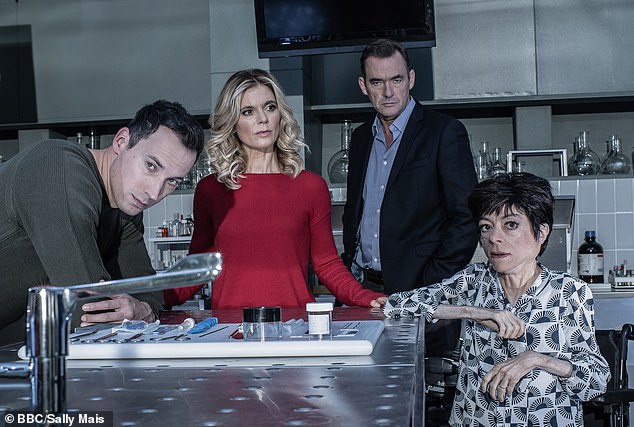
The 52-year-old actress is known for playing forensic examiner Clarissa Mullery in BBC crime drama Silent Witness (pictured).
John Carney, Delaware’s Democratic governor, vetoed a bill allowing assisted dying in his state last month, saying he was “fundamentally and morally” opposed to such procedures.
Meanwhile, lawmakers in Kansas and West Virginia took steps this year to toughen their laws against assisted dying.
“This tells me that people are really thinking,” Carr says.
“They don’t want entire groups of people to feel afraid, especially those who already feel very vulnerable.”
But although most US states prohibit assisted suicide, some sufferers of cancer and other serious medical problems will continue to seek the support of a doctor to end their plight.
Last month, a 64-year-old woman from the American Midwest traveled to Switzerland and became the first person to use a “suicide capsule” in a forest in the northern Schaffhausen region, near the German border.
The 3D-printed capsule is designed to allow a person sitting in a reclining seat inside to press a button, which injects nitrogen gas into the sealed chamber, allowing them to fall asleep and then die from asphyxiation within minutes.
The woman who died has not been identified. Members of The Last Resort group who helped her use the futuristic ‘Sarco’ capsule were arrested by Swiss police. It is unclear whether the devices are legal there.
Organizers said the woman’s death was “peaceful, quick and dignified,” but those claims could not be independently verified.
The woman was reportedly severely immunocompromised.

A 64-year-old woman from the American Midwest traveled to Switzerland last month and became the first person to use a “suicide capsule” to end her life there.
Carr questions why a U.S. citizen traveled some 4,500 miles to die in a capsule, now that Oregon and Vermont allow foreigners to use their assisted dying systems.
“I’m really interested in why he felt he had to do that, when he had access to assisted suicide in his own country,” Carr says.
“Maybe his list of conditions wasn’t so severe that he wouldn’t qualify.”
Carr lived in the United States for two years during his childhood and says he fondly remembers its “diners and sweets.”
He hopes to return to American screens with the third season of Good Omens, in which he plays the angel Saraqael. The British show has been available in the US on Prime Video.
She will also appear in a play, Unspeakable Conversations, in London, which depicts the remarkable real-life meeting between disabled American lawyer Harriet McBryde Johnson and Princeton University bioethics professor Peter Singer.

